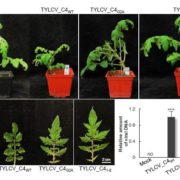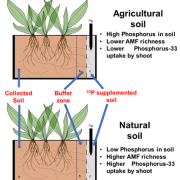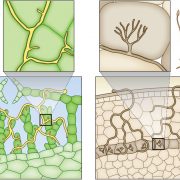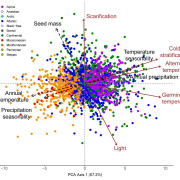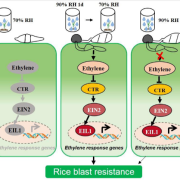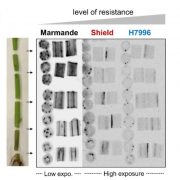Ecosystem responses to elevated CO2 are governed by plant-soil interactions and the cost of nitrogen acquisition
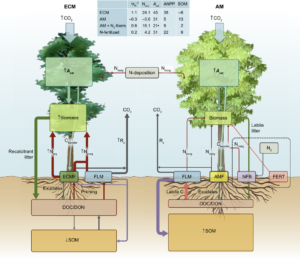 How does the cost of nitrogen acquisition affect how an ecosystem responds to elevated CO2? Terrer et al. have addressed this question in a comprehensive review of findings from elevated CO2 experiments, using a plant economics framework. The authors describe ecosystem responses, particularly those of plants to elevated CO2, by interactions with mycorrhizal fungi and symbiotic N-fixing microbes, and explain these responses as a relationship between costs and benefits. These established interactions that allow N-acquisition positively correlate with plant growth and photosynthetic capacity and have a negative co-relation with carbon storage. The review summarizes that the predicted models which aim to improve the carbon feedback loop as a result of elevated CO2 emissions may be improved by treating N as a resource for plants that can be acquired at the expense of enregy, and will have lower costs depending upon the status of the plant-microbe symbiosis. (Summary by Amey Redkar) New Phytol. 10.1111/nph.14872/full
How does the cost of nitrogen acquisition affect how an ecosystem responds to elevated CO2? Terrer et al. have addressed this question in a comprehensive review of findings from elevated CO2 experiments, using a plant economics framework. The authors describe ecosystem responses, particularly those of plants to elevated CO2, by interactions with mycorrhizal fungi and symbiotic N-fixing microbes, and explain these responses as a relationship between costs and benefits. These established interactions that allow N-acquisition positively correlate with plant growth and photosynthetic capacity and have a negative co-relation with carbon storage. The review summarizes that the predicted models which aim to improve the carbon feedback loop as a result of elevated CO2 emissions may be improved by treating N as a resource for plants that can be acquired at the expense of enregy, and will have lower costs depending upon the status of the plant-microbe symbiosis. (Summary by Amey Redkar) New Phytol. 10.1111/nph.14872/full


